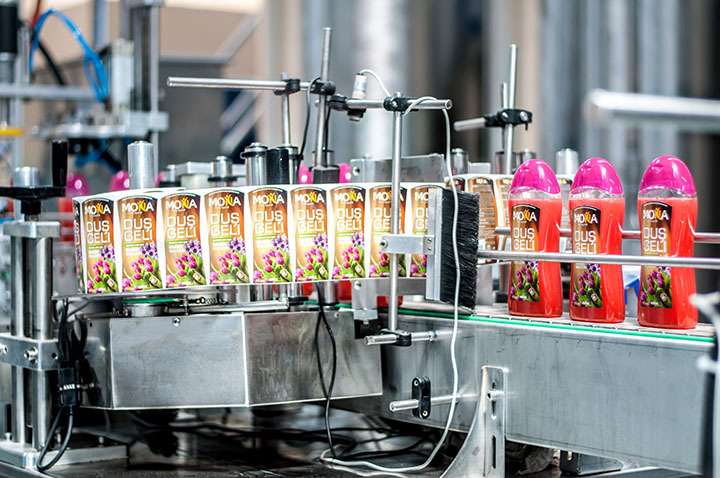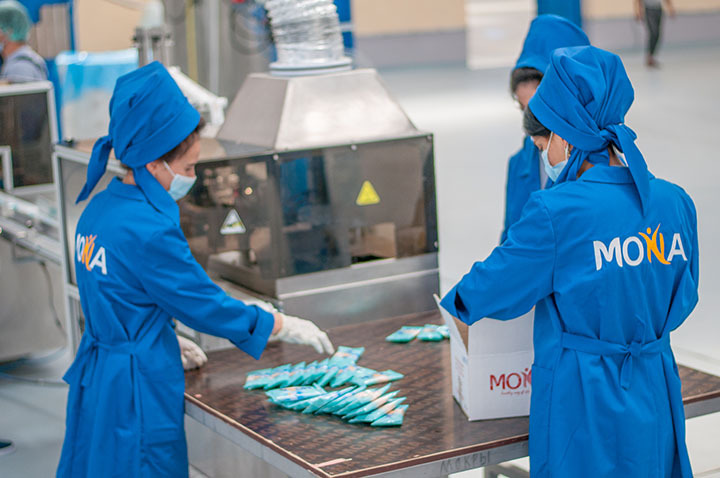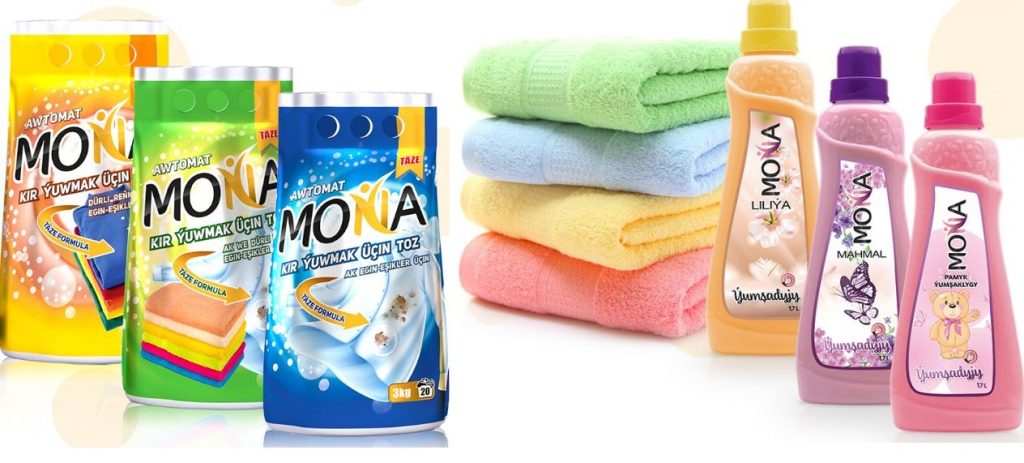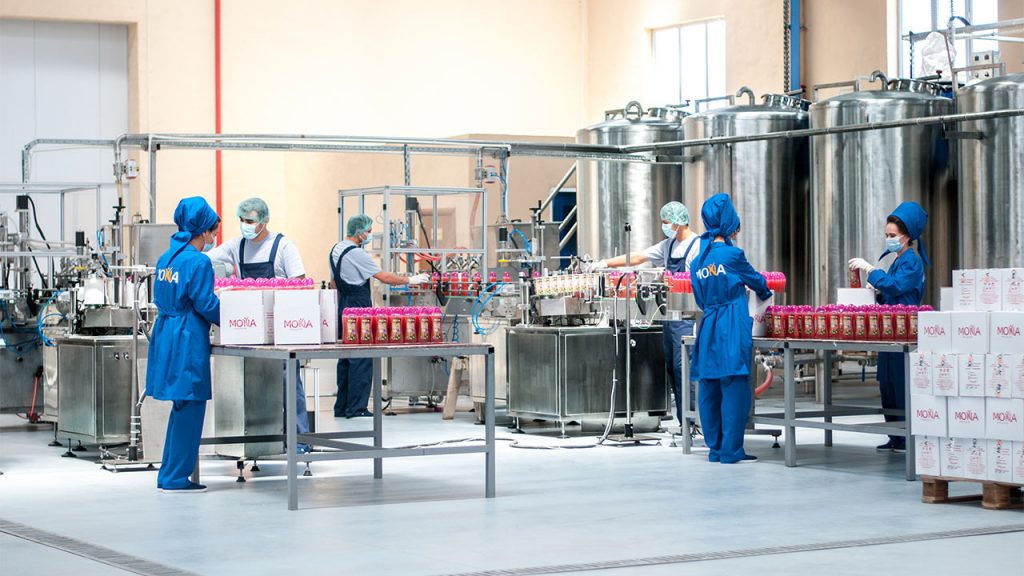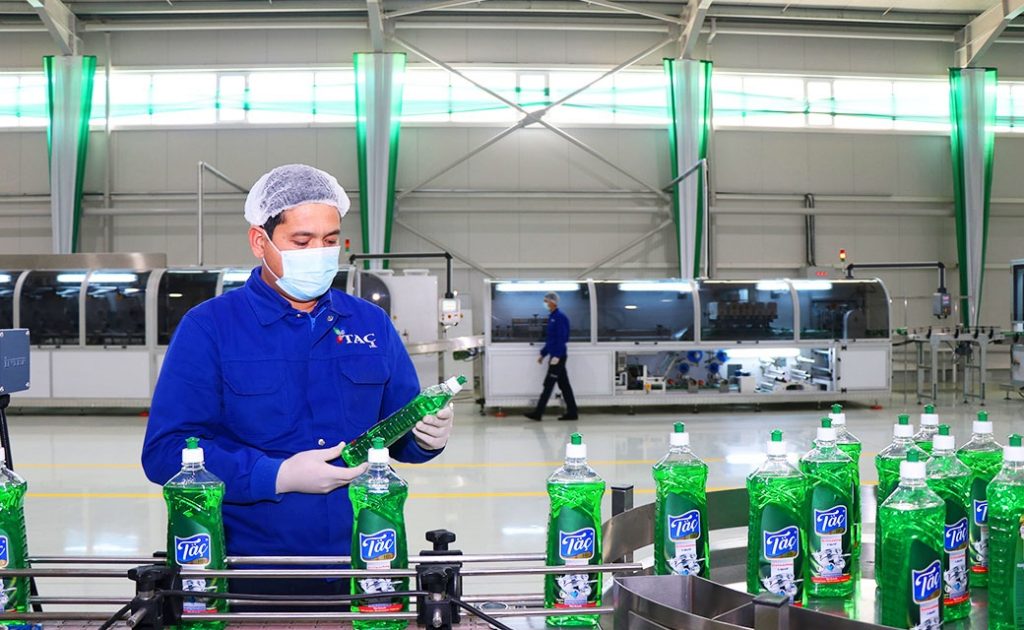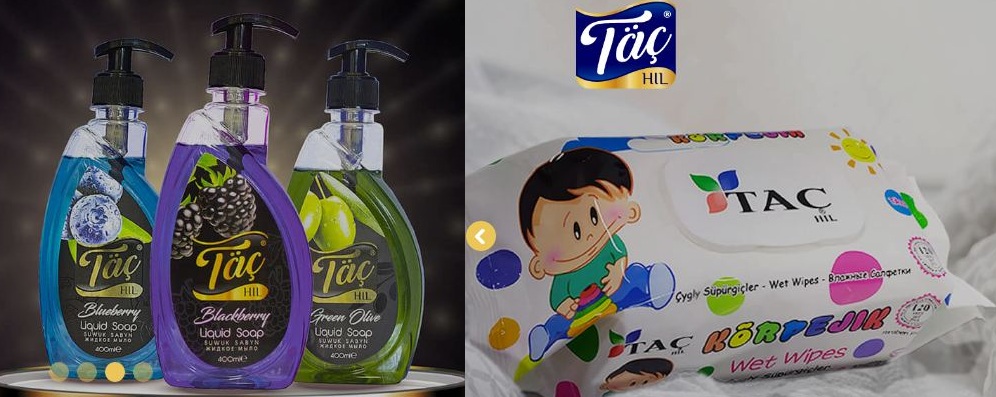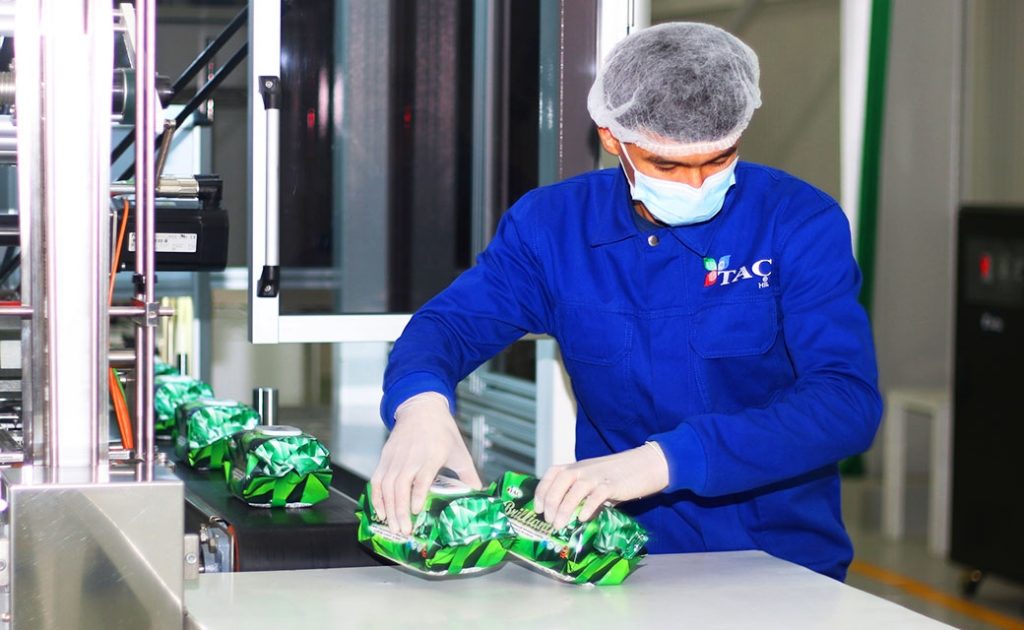Elvira Kadyrova
The Turkmen market has reached full self-sufficiency with locally produced personal hygiene and household chemicals. If a few years ago the consumer was offered only imported products, today supermarket shelves are variegated with cosmetic products under the brand “Made in Turkmenistan”.
This market segment enjoys not only the product range growth, but also its quality and increasing number of manufacturers. And most importantly, the local products are not inferior in quality to imported analogues and attractive in the price range. Some brands have earned high market popularity, encouraging them to develop new products, increase and expand production capacity.
Local producers did not miss their chance to occupy a market niche on the substitution principle even in the challengeable pandemic-caused foreign trade environment, when supplies from abroad are limited. The private sector immediately launched the production of disinfecting antibacterial soaps, gels, sprays. The design solution for such products is also taken into account. 500 ml for household use and small bottles for carrying, for example, in a lady’s handbag are for the customer’s best choice.
Three years ago, the entrepreneur M. Orazov started multi-manufacturing production in the Ak Bugday district of the Akhal velayat. Shampoos, shower gels, wet and dry wipes, soap, toilet paper, detergents and fabric softeners from the MONA brand are now known and loved in every home and in every family.
Personal hygiene products for adults and children meet the quality of generally accepted international standards. They pass a thorough microbiological check and parabens-free. The production technology strictly follows all the nuances, finally appreciable in the crystal cleanness of laundry or velvet skin.
Wet wipes are an essential thing in a woman’s purse, school backpack, on the desk, in the car. The MONA workshops produce about 14 kinds of wet wipes in different packaging configurations. Have we ever thought about how the production process goes before the multi-colored napkin briquette reaches us?
First, according to a special recipe, moisture solution is prepared in mixing tanks – antibacterial, moisturizing, sun-protective, polishing, perfume. The main component of the solution is water, pre-filtered, softened and purified of bacteria and microorganisms. The basic raw material is non-woven material, cut according to the specified parameters.
Then the wipes are saturated with the cleansing liquid using a special feeding system. The special equipment cuts the non-woven fabric into specified tissues, which are then automatically stacked up and packed in a consumer container made of a combined material with a closing sticker and a reusable plastic valve.
Every year, 20 million wet wipes, hundreds of thousands of bottles of detergents, shampoos, gels…this is the production scale of another very popular brand in the Turkmen market of hygiene products and household chemicals – the company Täç Hil, established in 2006.
100% natural premium-class products of Täç Hil – softeners, liquid soap of various varieties, wet wipes, toilet paper, paper towels, detergents, are produced under cleanroom technology and meet the international quality standards HALAL RC HL 17-009, ISO 22716, OHSAS 18001, ISO 9001, ISO 14001, ISO 10002.
About 90% of liquid soap sold on the market is produced according to a somewhat outdated, albeit classic recipe. Low-quality soap does not contain ingredients that neutralize the harmful effects of chemicals on the skin. As a result, the skin becomes dry and allergic. Every time we wash our hands with Täç Hil liquid soap, a thin layer of glycerin remains on the skin. Glycerin absorbs and transfers water molecules from the air to the skin and keeps it soft for a long time.
Marketers and technologists of Täç hil, MONA and other local producers do not stop there. On daily basis they set goals for entering foreign markets, study home needs, develop new products designed to improve and facilitate the maintenance of cleanliness and personal hygiene. /// nCa, 1 July 2020
